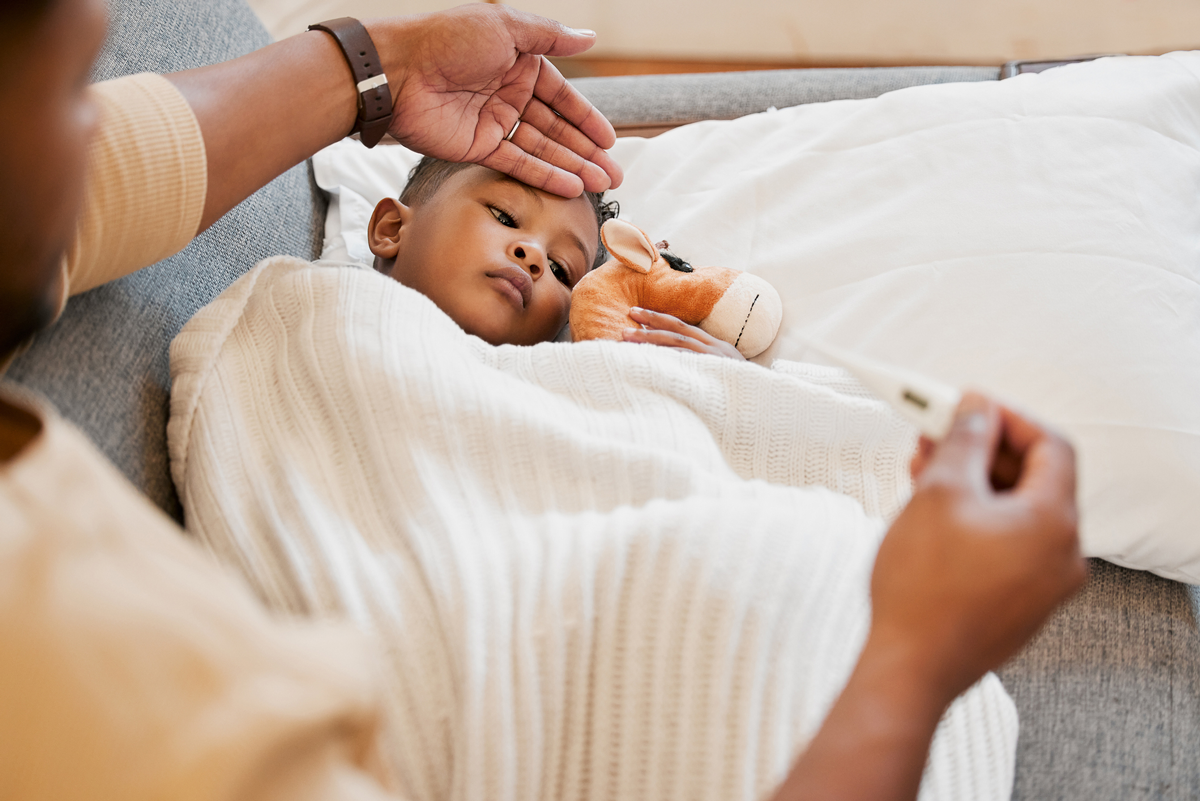Does your child need probiotics?
If you are a regular reader of this newsletter, you will be familiar with my stance on supplements (broadly, negative), but I have at times been more enthusiastic about probiotics. I have even, full disclosure, used probiotics with my kids when they complained of chronic stomachaches (our pediatrician said it was “worth a try”). The stomachaches improved, although causality is always hard to determine in small sample sizes.
Recently, though, probiotics have gotten a bit of a bad rap. This Washington Post story, for example, has a headline claiming that probiotics might make your health worse. Presumably the same would be true for kids. So what’s the truth? Bad? Good? Neutral? Sometimes good? Let’s dive in.
Note for today: I am going to focus on probiotics and kids here, to keep the scope slightly limited. This is, after all, a parenting newsletter.
What is a probiotic? Is it the same as a prebiotic? Where do they come from?
Probiotics are live microorganisms — bacteria — that colonize your gut and (in principle) improve your gut microbiome. In our slightly germophobic post-pandemic world, it may seem odd to boost health by ingesting foreign bacteria, but our digestive system relies on these bacteria to work well. If the bacterial balance is off, it can mess with our digestion and, mostly, our poop. In principle, probiotics can help restore this balance.
Prebiotics are the food that the bacteria eat — typically, fiber.
Both probiotics and prebiotics can be ingested through food. Any high-fiber food serves as a prebiotic: whole grains, vegetables, fruits like bananas, etc. Probiotics are found most commonly in food that is fermented: sauerkraut, kimchi, yogurt, kombucha.
Both can also be taken through supplements. All of these sources — different foods, different supplements — have slightly different bacteria that they offer.
There is also, by the way, a thing called a postbiotic, which is the byproduct produced when the probiotics eat the prebiotics. These might in principle have some health benefits also, but they don’t seem to have gotten the marketing dollars behind them yet.
Probiotics for babies
Generally, babies poop great. Frequently! Weird colors! But overall great poopers.
However: probiotics supplements (in liquid form) are sometimes pitched as a treatment for colic. As a reminder, infantile colic is defined as excessive crying; there are various ways this is measured, but broadly we can think of it as crying that is unconsolable for long periods.
The evidence on this I would describe as promising but small-scale. In a meta-analysis of four randomized trials, infants who were given probiotics had a larger decrease in crying (25 minutes shorter) than babies who were in a control group. Caveats: these effects appear only for breastfed babies, and they are based on self-reports.
These, in my view, fall in the “worth a try” category of colic treatments. The particular bacteria that is the focus of these studies is Lactobacillus reuteri DSM 17938, so if you do follow this advice, make sure you get a supplement that uses that particular one.
Probiotics for older kids
When it comes to older kids, probiotics are often suggested more liberally for a variety of digestive-related maladies, as well as for allergies. The evidence here varies in its convincing-ness.
Probiotics with antibiotics
One of the most common uses for probiotics is given alongside antibiotics to prevent antibiotic-associated diarrhea (AAD). When a child (or adult) gets antibiotics for an infection, the drug kills bacteria. This is its job. It kills the bacteria that are making you sick, but it also kills other bacteria, like the ones in your gut that are helping out. The result is, commonly, diarrhea.
Taking probiotics at the same time has the potential to recolonize the good bacteria to prevent this.
A Cochrane Review of randomized trials, published in 2019, included 33 studies with a total of over 6,300 participants and showed that diarrhea was reduced by more than half (8% versus 19%) when probiotics were dosed alongside antibiotics. The reductions were larger when the doses were bigger (greater than 5 billion CFUs [colony forming units] per day), and side effects appeared minimal.
This is good news for probiotics, and it also makes sense. You are literally directly replacing what is being lost.
Two quick clarifications. First, the probiotics do not in any way compromise the antibiotics. They replace good bacteria, not harmful bacteria! Second, the value to taking these is during the antibiotic treatment, when the good bacteria are being actively killed.
Probiotics for ongoing stomach/diarrhea/constipation problems
The reasoning behind the value of probiotics for AAD is straightforward. Because there is evidence to suggest they work for that condition, there is reason to ask whether probiotic treatment would work more generally for digestive issues in kids.
Here, the evidence is weaker. In relatively large-scale randomized trial evidence (about 1,700 children over two trials), treating children who arrived at the ER with gastrointestinal issues with probiotics did not improve their recovery. This suggests it may not be a helpful treatment with acute illness.
On the other hand, some smaller-scale evidence (on about 500 children) from the developing world shows some efficacy against persistent diarrhea. How applicable that is to richer countries is less clear. It might be! It’s just that we do not have airtight studies. A similar point is relevant in probiotics to treat irritable bowel syndrome (IBS): there is some thought that it might help, some non-randomized evidence that might be suggestive, but nothing airtight. Same story with functional constipation.
Something that looms over this entire literature is a great deal of heterogeneity (variation in the impacts). In many cases it seems like the treatment works for some people but not others, or some particular bacteria strains work for some people and not others. Conceptually, we can see why this might be. It seems possible that some — though not all! — digestive issues are related to an imbalance in the microbiome. If this is your issue, the treatment is more likely to work. If it’s not, it won’t.
We often do not know what the problem is when kids, or adults, complain of ongoing stomach pain, loose stools, constipation, and so on. For some people, probiotics might help. This is a reason to — as our pediatrician said — “give it a try.” Side effects from probiotics are rare. If they work, they’ll work. And that will be great. If they don’t work, then you are no worse off than you were before.
Probiotics for other stuff, just in general
If you look, you’ll see probiotics recommended for all kinds of things: allergies, eczema, mental illness, etc., etc. The evidence on most of these is either nonexistent or, in the case of eczema in small children, similar to the discussion above — it might help, but we cannot be confident based on data. In these cases, the mechanism is also somewhat less clear than in the case of digestive health.
Probiotics summary
- If your baby has colic, it’s worth a try, but don’t expect a miracle.
- Dosing with probiotics during antibiotic treatment with kids is a good idea.
- Probiotics will not help when your kid has norovirus or similar.
- For a general, vague stomach issue, probiotics are not a substitute for seeing your doctor and having the issue evaluated. However, they may be worth a try, and there is no reason not to.
- There isn’t much evidence to support a general policy of dosing kids with probiotics in the absence of a reason. There isn’t much evidence of a downside, but it’s just one more thing to think about and worry about (also, probiotics are expensive).
But … are probiotics bad? What about that headline?
Most of this discussion works on the assumption that probiotics are not bad. And, generally, official medical recommendations support that view. There is some caution in their use in people with compromised immune systems, but in healthy children and adults, risks are cited as minimal.
But what about that headline?
That article cites one study (in adults) that found that people who took probiotics after antibiotics had less gut microbiome diversity than people who either (a) did nothing or (b) had their pre-antibiotics stool transplanted back after treatment. This is an interesting fact, but it’s one study, and the overall picture of probiotic treatment is much larger than this.
In fact, the primary thrust of that article is that it’s better to get your probiotics through food than through supplements. Fermented food like sauerkraut and kimchi provide a wider variety of probiotic species than a pill, and that may be extra-good. This is probably true! But it also may be infeasible in some cases. Getting your child to eat enough fermented yogurt drink and kimchi to keep them healthy during a course of antibiotics is likely a challenge.
This may be a place where there is value in embracing the second best. Which, in this case, is a fruit gummy full of bacteria.
Community Guidelines
















Log in